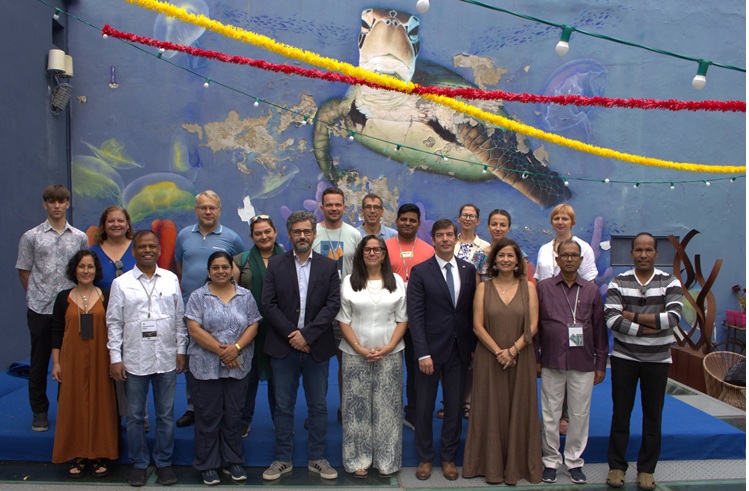
SIPAS project strengthens international collaboration at follow-up meeting
- Categories Ciências Empresariais, International, Projetos
- Date 04/08/2025

The School of Business and Administration – Polytechnic University of Setúbal hosted the general follow-up meeting of the European project SIPAS – Advancing Sustainability and Technology in Tourism, Hospitality, and Services Studies through Strategic Industry Partnerships, from July 8 to 11.
The initiative brought together representatives from the consortium’s partner institutions: Vidzeme University of Applied Sciences (Latvia), National Institute of Tourism and Hospitality Management (Hyderabad, India), and Pondicherry University (India).
Over four days of collaborative work, participants assessed the progress of ongoing activities, aligned future strategies, and engaged in joint sessions with IPS faculty and researchers. The meetings took place at the IPS Setúbal campus and in the city of Setúbal, in facilities provided by the Municipality of Setúbal, a strategic partner, reinforcing the involvement of the local community in the project’s implementation.
Funded by the Erasmus+ programme, the SIPAS project aims to contribute to the modernization of Higher Education in the fields of tourism, hospitality, and services through the development of innovative teaching modules focused on sustainability and the application of emerging technologies such as augmented reality and virtual reality.
The project also includes the creation of technological innovation laboratories (I-Labs), the organization of international conferences, and training activities, with a direct impact on hundreds of students and faculty members. Close collaboration with stakeholders from the tourism industry is one of SIPAS’s key pillars, promoting an integrated approach between academia and the business sector.
IPS’s active participation in this international consortium reflects its commitment to pedagogical innovation, internationalization, and the development of skills aligned with the Sustainable Development Goals (SDGs), contributing to the training of professionals prepared to meet the challenges of the sustainable tourism industry.


